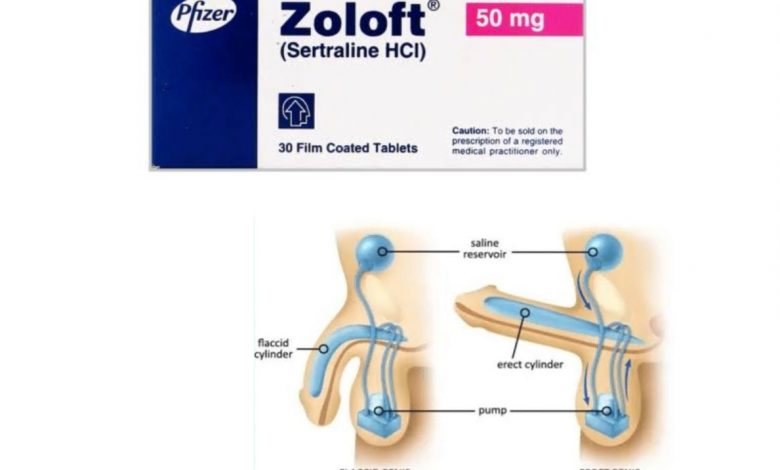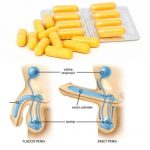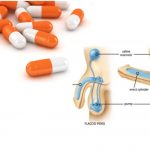Can Zoloft Cause Erectile Dysfunction Permanent?

Erectile dysfunction, also known as impotence is defined as difficulty getting and keeping an erection. It can be an embarrassing thing to talk about. It’s been reported that more than half of men between the ages of 40 and 70 experience some form of ED. So take comfort in knowing that you are not alone.
One reason erectile dysfunction becomes more common with age is that older men are more likely to be on some kind of medication. In fact, an estimated 25% of all ED is a side effect of drugs, according to the Harvard Special Health Report Erectile Dysfunction: How medication, lifestyle changes, and other therapies can help you conquer this vexing problem.
The most common types of medication that are linked to ED include antidepressants, anti-ulcer drugs, tranquilizers, and diuretics—which help the body get rid of sodium and water, and are used to treat heart failure, liver failure, and certain kidney disorders.
What is Zoloft?
Zoloft is a brand of sertraline, a medication used to treat depression, obsessive-compulsive disorder (bothersome thoughts that won’t go away and the need to perform certain actions over and over), panic attacks (sudden, unexpected attacks of extreme fear and worry about these attacks), posttraumatic stress disorder (disturbing psychological symptoms that develop after a frightening experience), and social anxiety disorder (extreme fear of interacting with others or performing in front of others that interferes with normal life).
Zoloft is also used to relieve the symptoms of premenstrual dysphoric disorder, including mood swings, irritability, bloating, and breast tenderness. Sertraline is in a class of antidepressants called selective serotonin reuptake inhibitors (SSRIs). It works by increasing the amounts of serotonin, a natural substance in the brain that helps maintain mental balance.
How should I take Zoloft?
Zoloft comes as a tablet and a concentrate (liquid) to take by mouth. It is usually taken once daily in the morning or evening. To treat a premenstrual dysphoric disorder, Zoloft is taken once a day, either every day of the month or on certain days of the month. Take Zoloft at around the same time every day. Follow the directions on your prescription label carefully, and ask your doctor or pharmacist to explain any part you do not understand. Take sertraline exactly as directed. Do not take more or less of it or take it more often than prescribed by your doctor.
Zoloft oral concentrate is available in a multidose 60 mL bottle. Each mL of solution contains sertraline hydrochloride equivalent to 20 mg of sertraline. Zoloft concentrate must be diluted before use. Immediately before taking it, use the provided dropper to remove the amount of concentrate your doctor has told you to take. Mix the concentrate with 4 ounces (1/2 cup [120 milliliters]) of water, ginger ale, lemon or lime soda, lemonade, or orange juice. After mixing, the diluted solution may be hazy; this is normal. Do not mix the concentrate with any liquids other than the ones listed. Drink the diluted solution immediately.
Your doctor may start you on a low dose of sertraline and gradually increase your dose, not more than once a week.
It may take a few weeks or longer before you feel the full benefit of sertraline. Continue to take sertraline even if you feel well. Do not stop taking sertraline without talking to your doctor. If you suddenly stop taking sertraline, you may experience withdrawal symptoms such as nausea, sweating, depression, mood changes, frenzied or abnormally excited mood, irritability, anxiety, confusion, dizziness, headache, tiredness, seizures, ringing in the ears, numbness or tingling in the arms, legs, hands, or feet, difficulty falling asleep or staying asleep.
Does Zoloft cause erectile dysfunction?
Yes, Zoloft can cause sexual side effects, including erectile dysfunction in some people. Research shows that between 25 percent and 73 percent of people who use SSRIs like Zoloft report experiencing sexual side effects such as delayed ejaculation, reduced desire, and impotence. Sertraline also makes some men unable to climax.
In contrast, a small study suggests that taking Zoloft can improve premature ejaculation symptoms. It’s best to talk with your healthcare provider to see if Zoloft is the right choice for you. Zoloft can also cause hypersexuality as evidenced by the reports of several people who reported hypersexuality symptoms while on Zoloft.
Is Zoloft erectile dysfunction permanent?
No, Zoloft-induced erectile dysfunction is not permanent, there are many different options for treating this, however, DO NOT STOP your medication without working with your primary care provider.
Generally, your doctor may recommend sertraline erectile dysfunction management tips that can enhance sexual performance while allowing a person to continue taking potentially life-saving or life-extending medications. Often, such treatments begin with making changes to a person’s routine. These include:
- adopting healthful eating habits
- avoiding using recreational drugs
- increasing daily exercise
- limiting or avoiding alcohol
- maintaining a healthful weight
- quitting smoking
- sleeping well
If Zoloft produces more pronounced sexual side effects at a particular time of the day, for example, within a few hours of taking it. Then your doctor may recommend you try scheduling sexual activity for the time when side effects are least bothersome or take Zoloft at a different time.
If these interventions fail, your doctor may switch you from Zoloft to another medication that is less likely to cause side effects like erectile dysfunction. There’s no firm rule about how or when to switch, so it’s important to follow your doctor’s guidance.
Does Zoloft increase testosterone?
Yes, studies have shown that in men, Zoloft can affect the levels of testosterone and dopamine a type of neurotransmitter and hormone. These two hormones play a crucial role in male sexual function, especially sexual desire and performance. The relationship between dopamine and testosterone is bidirectional: dopamine can influence testosterone and testosterone can influence dopamine.
Can I take Viagra while on Zoloft?
Although there are no known interactions between Zoloft and Viagra, do not take Viagra while on Zoloft without first discussing it with your doctor or healthcare provider. Studies indicate that when Zoloft is combined with Viagra, it can produce significantly better results than Zoloft alone in patients with premature ejaculation. However, the combined treatment is associated with a slight increase in drug-related side effects.
What are the side effects of Zoloft?
Zoloft may cause side effects. Tell your doctor if any of these symptoms are severe or do not go away:
• constipation
• diarrhea
• difficulty falling asleep or staying asleep
• dizziness
• dry mouth
• excessive sweating
• excessive tiredness
• headache
• heartburn
• loss of appetite
• nausea
• nervousness
• sexual problems in females; decreased sex drive, delayed orgasm, or unable to have an orgasm
• sexual problems in males; decreased sex drive, inability to get or keep an erection, or delayed or absent ejaculation
• uncontrollable shaking of a part of the body
• vomiting
• weight changes
Some side effects can be serious. If you experience any of the following symptoms, call your doctor immediately:
• abnormal bleeding or bruising
• agitation, hallucinations, fever, sweating, confusion, fast heartbeat, shivering, severe muscle stiffness or twitching, loss of coordination, nausea, vomiting, or diarrhea
• difficulty breathing
• headache, weakness, unsteadiness, confusion, or memory problems
• hives
• rash
• seizures
• swelling
Zoloft may decrease appetite and cause weight loss in children. Your child’s doctor will watch his or her growth carefully. Talk to your child’s doctor if you have concerns about your child’s growth or weight while he or she is taking this medication. Talk to your child’s doctor about the risks of giving sertraline to your child.
Sertraline may cause other side effects. Call your doctor if you have any unusual problems while taking this medication.
If you experience a serious side effect, you or your doctor may send a report to the Food and Drug Administration’s (FDA) MedWatch Adverse Event Reporting program online (http://www.fda.gov/Safety/MedWatch) or by phone (1-800-332-1088).





